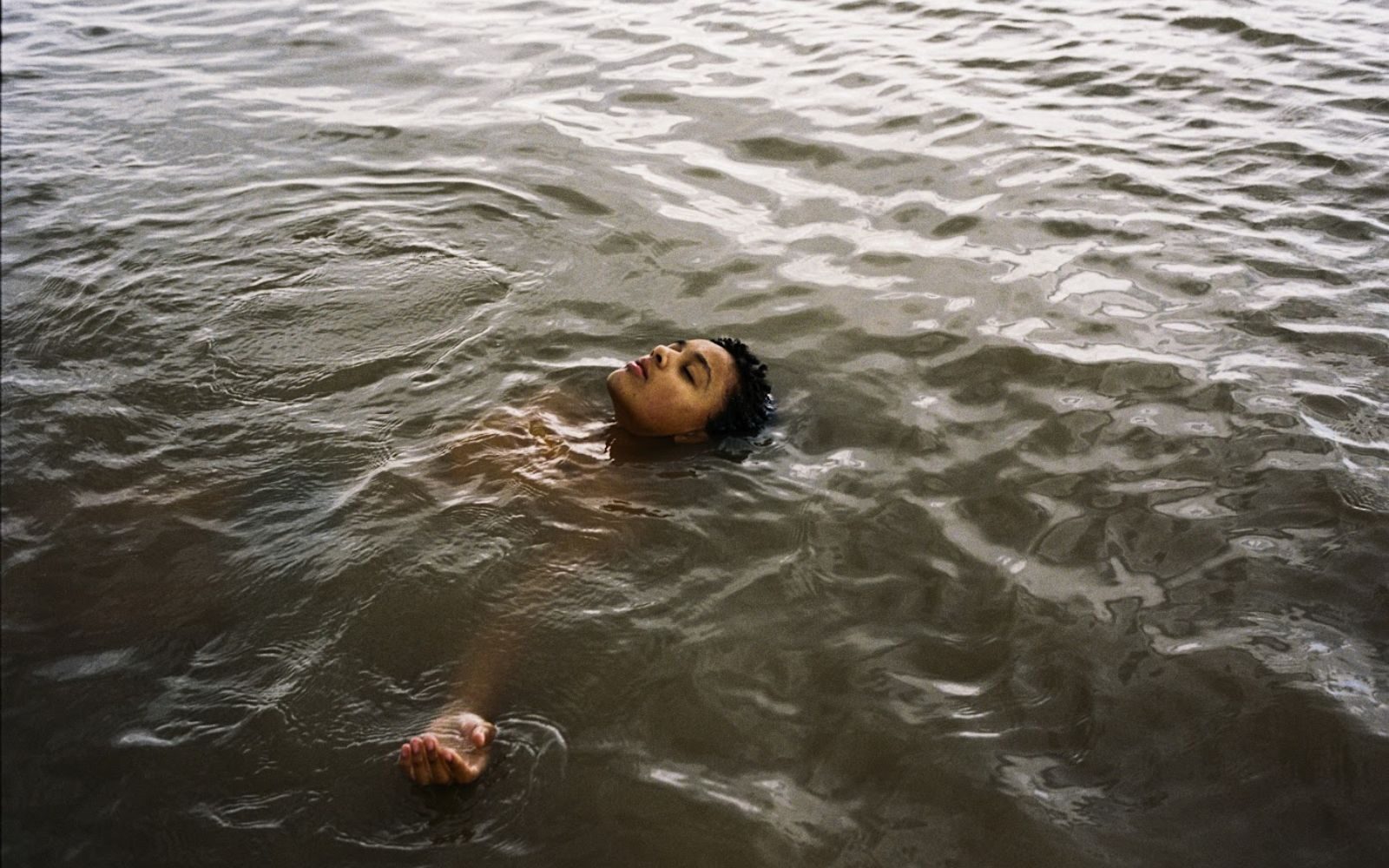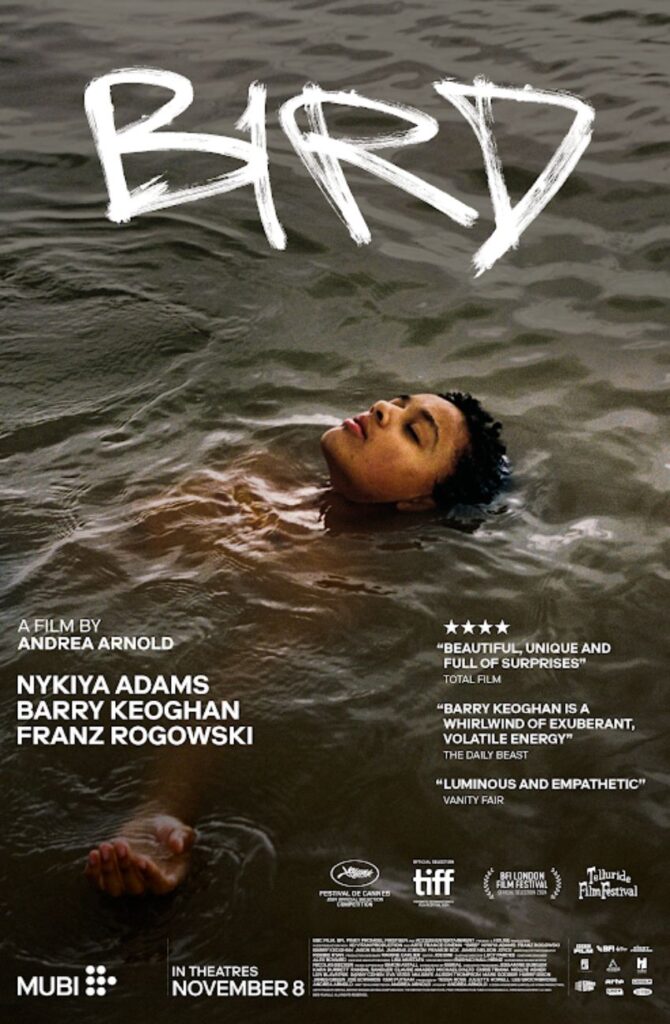
Bird Reinvigorates Realist Cinema with Fairytale Magic
Filmmaker Andrea Arnold injects an element of fantasy into the great cinematic tradition of British Social Realism.
Directed by Andrea Arnold
by Prabhjot Bains
- Published on
Across six feature films and a documentary, filmmaker Andrea Arnold has built a career out of working-class portraiture. Whether immersing audiences in the housing projects of Essex in Fish Tank or taking audiences across the pond and into the solemnly beautiful heartland of American Honey, Arnold’s lens both draws on and builds upon the great cinematic tradition of British Social Realism.
Described by author Richard Armstrong as “Britain’s richest gift to world cinema,” the movement extends from the “kitchen sink dramas” of the ’60s — which candidly tackled controversial topics like class, race, and sexuality — to the work of direct, contemporary influences like Mike Leigh and Ken Loach. To its very core, the movement is defined by its frank and unadulterated examination of a Britain that everyone knows but rarely takes the time to understand and humanize.
That very style and ambition seeps into every frame of Arnold’s filmography, including her latest effort, Bird. Though, for as honest and raw as its depictions of parental neglect, addiction, and crime are, Bird is also Arnold’s and, by extension, the sub-genre’s most fantastical and quixotic entry yet. It unfolds as the lovechild of Steven Spielberg’s E.T. and Ken Loach’s Kes, entwining the realms of fairytale and docufiction to cement a singular experience that feels both dreamlike and starkly real. Across each of Bird’s 119 minutes, Arnold fosters an entirely new sub-sub-genre: Magical Social Realism. While Arnold’s shift towards this daring new vision doesn’t always reap rewards, it takes flight as a reinvigorating, punk rock addition to the British cinematic canon.
Bird follows 12-year-old Bailey (Nykiya Adams in her feature debut), who squats with her affable, unreliable, and soon-to-be-married father, Bug (Barry Keoghan), and her half-brother Hunter (Jason Buda) in northern Kent. All the while, her biological mother lives with an abusive partner. Bailey, who nears puberty, finds little guidance from her graffiti-laden and dilapidated environment, leaving her to chart her own course. She finds that sense of adventure in the titular Bird (Franz Rogowski), a drifting free spirit, dressed in a free-flowing skirt, who comes to town in search of his estranged father. Oh, and he may or may not have the ability to shapeshift into various avian animals.
Shot with a verité and naturalistic eye, Bird first approaches viewers as a raw and unfiltered experience and as a legitimate account of a downtrodden Britain hidden in plain sight. The decision to shoot the film in 16mm reinforces that authenticity, as do the imperfections and scratches that pervade each frame. Yet, as the film unfurls, those same qualities, in tandem with Robbie Ryan’s free-flowing and wide-angled cinematography, begin to lend Bird a magisterial glow. Arnold’s film synthesizes the ethereal and the tangible, the surreal and the natural. As we come to inhabit Bailey’s worldview, what’s real and isn’t becomes a matter of perspective, but the socio-economic realities Arnold taps into remain front-of-mind and palpable. It’s all part of Arnold’s grand vision of ushering in Magical Social Realism.
The performances Arnold draws from her cast reflect that same duality, especially in the dynamic between Adams’ emotionally muted Bailey and Rogowski’s more eccentric Bird. Rogowski’s animated and articulated figure especially dominates the frame, conjuring the kind of mysterious, mythical figures that find themselves at the center of children’s fables. Operating as a stripped-down analogue to friendly creatures like E.T., Falkor (The NeverEnding Story), and even Totoro, Bird slowly teaches Bailey to shapeshift in her own way, ultimately discovering and transforming into who she wants to be. In imbuing her realist lens with a whimsical touch, Arnold crafts the rare magical adventure that paints an honest, raw, and enduring image of urban decay.
Armed with a killer soundtrack featuring raw punk anthems from the likes of Fontaines D.C. and Sleaford Mods, as well as a crackling electronic score courtesy of Burial, Bird builds its own, enchanting nest within the canon of British realism. Despite blurring the line between the literal and the figurative, Arnold somehow continues to mine bigger, bolder, and more unflinching social truths—adding rich layers to an already rich filmic tradition.

